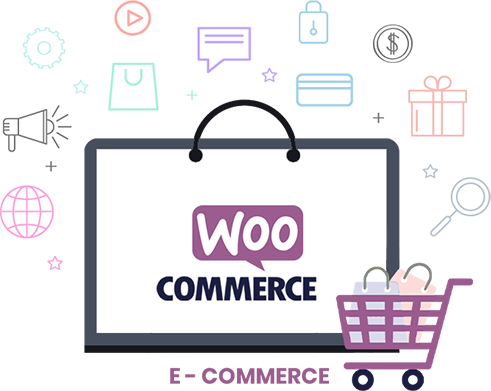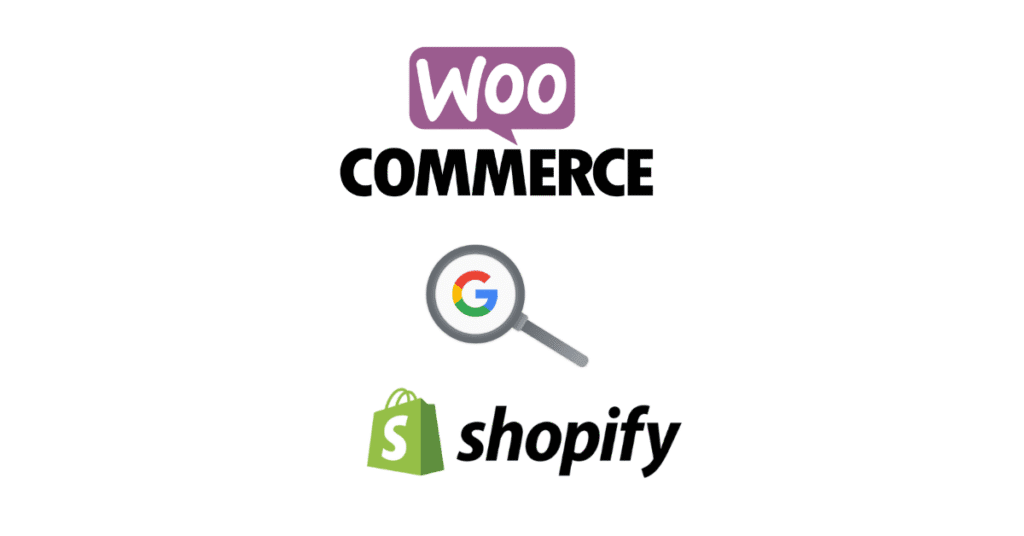Woo Commerce Review 2025: The Ultimate eCommerce Platform for WordPress? Discover if WooCommerce is still the top choice for online stores in 2025.
Explore its features, pros and cons, user feedback, and comparison with Shopify in this in-depth review.

If you’re considering launching an online store, you’ve likely encountered WooCommerce. A powerful, open-source e-commerce plugin for WordPress, WooCommerce offers flexibility and control.
But is it the right fit for your business? In this comprehensive review, we’ll delve into WooCommerce’s features, compare it with Shopify, and provide insights to help you make an informed decision.
Table of Contents
- Introduction to WooCommerce
- Key Features of WooCommerce
- WooCommerce vs. Shopify: A Comparative Analysis
- Advantages of WooCommerce
- Disadvantages of WooCommerce
- User Feedback and Reviews
- FAQs
- Conclusion
What is WooCommerce?
WooCommerce is a free, open-source eCommerce plugin for WordPress. Launched in 2011, it quickly became the go-to solution for businesses wanting to sell online using WordPress.

It’s highly customizable, SEO-friendly, and integrates seamlessly with thousands of plugins.
Key Stats About WooCommerce (2024) 📊
- Powering over 5 million websites (BuiltWith)
- 28.19% market share in eCommerce platforms (W3Techs)
- Over 1,000+ free & premium extensions available
- Used by brands like All Blacks, Singer, and Weber
How Does WooCommerce Work?
- You install it on WordPress (just like any other plugin).
- Set up your products, payments, and shipping.
- Customize the design to match your brand.
- Launch and start selling!
But here’s the catch—WooCommerce isn’t a standalone platform. It runs on WordPress, meaning you’ll need:
- Web hosting (like SiteGround or Bluehost)
- A domain name (yourstore.com)
- Possibly premium plugins (for extra features)
So while Woo itself is free, running a store isn’t completely free. (More on pricing later.)
Key Features of WooCommerce
- Seamless WordPress Integration: As a WordPress plugin, WooCommerce integrates smoothly, allowing users to leverage the CMS’s capabilities.
- Customization: Offers extensive customization options through themes and plugins.
- Product Management: Supports physical, digital, and subscription products.
- Payment Gateways: Compatible with major payment processors like PayPal, Stripe, and Square.
- Shipping Options: Provides flexible shipping configurations, including real-time rates and flat rates.
- Tax Management: Automates tax calculations based on location.
- Analytics and Reporting: Built-in analytics tools to monitor sales, orders, and customer data.
- Mobile App: Manage your store on the go with the WooCommerce mobile app.
WooCommerce Pricing: Is It Cheap? 💸

“Free” Doesn’t Mean $0
- Hosting: 5–5–30/month
- Domain: 10–10–15/year
- SSL Certificate: Free (with most hosts)
- Premium Themes: 50–50–200 (one-time)
- Essential Plugins: 100–100–300/year
Realistic first-year cost? 200–200–500 (for a professional store).
Where Costs Can Explode 💥
- Advanced plugins (like AutomateWoo for email automation = $99/year)
- Premium support (if you hire a developer)
- High-traffic hosting (managed WooCommerce hosting = $30+/month)
Shopify’s pricing is simpler (29–29–299/month), but you lose flexibility.
Advantages of WooCommerce ✅
- Complete Ownership – You control your store’s data.
- Unlimited Customization – Modify anything with code or plugins.
- SEO Edge – Better optimization than most SaaS platforms.
- Lower Long-Term Costs – No monthly subscription (just hosting & extensions).
- Huge Community Support – Thousands of developers & forums.
Disadvantages of WooCommerce ❌
- It requires WordPress Knowledge, but it is not as beginner-friendly as Shopify.
- Self-Hosted = More Responsibility – You handle updates, security, and backups.
- Costs Add Up – Premium plugins can get expensive.
- Slower Performance if Not Optimized – Needs caching & CDN for speed.
WooCommerce vs. Shopify: Which is Better? 🤔
To help you decide, let’s compare WooCommerce with Shopify, the leading hosted eCommerce platform.
Comparison Table: WooCommerce vs. Shopify

| Feature | WooCommerce 🛒 | Shopify 🛍️ |
|---|---|---|
| Pricing | Free (but needs hosting & plugins) | Starts at $29/month |
| Ease of Use | Moderate (requires WordPress knowledge) | Very easy (drag-and-drop) |
| Customization | Highly customizable (open-source) | Limited (theme & app-based) |
| SEO Control | Full control (WordPress SEO plugins) | Good, but less flexible |
| Hosting | Self-hosted (you manage it) | Fully hosted (Shopify handles it) |
| Payment Fees | No transaction fees (unless gateway charges) | Extra fees if not using Shopify Payments |
| Scalability | Excellent (handles large stores) | Good, but expensive at higher tiers |
| Extensions/Apps | 1,000+ plugins (free & paid) | 8,000+ apps (many paid) |
Who Should Use WooCommerce?
✔ WordPress users who want full control
✔ Businesses needing advanced customization
✔ Those on a budget (but willing to manage hosting)
Who Should Use Shopify?
✔ Beginners who want a hassle-free setup
✔ Businesses needing a hosted solution
✔ Those who prefer an all-in-one platform
User Feedback: What Do Real Users Say? 🗣️

Positive Reviews 👍
- “WooCommerce gives me full control over my store. I love the flexibility!” – Mark, Small Business Owner
- “The plugin ecosystem is unmatched. I can add any feature I need.” – Sarah, E-commerce Entrepreneur
Negative Reviews 👎
- “Setting up was tricky. I had to hire a developer.” – Alex, First-Time User
- “Performance can slow down if you don’t optimize properly.” – Lisa, Online Store Owner
FAQs About WooCommerce ❓

Q1. Is WooCommerce free?
A1: Yes, the plugin is free, but you’ll need hosting, a domain, and possibly paid extensions.
Q2. Can I migrate from Shopify to WooCommerce?
A2: Yes! Tools like Cart2Cart make migration easy.
Q3. Does WooCommerce work with any WordPress theme?
A3: Most themes support WooCommerce, but dedicated Woo themes (like Astra, Flatsome) work best.
Q4. Is WooCommerce good for dropshipping?
A4: Yes! With plugins like AliDropship or Dropified, WooCommerce supports dropshipping.
Q5. How secure is WooCommerce?
A5: Security depends on your hosting and plugins. Use SSL, strong passwords, and security plugins like Wordfence.
Final Verdict: Should You Use WooCommerce? 🏆
👍 Pros:
- Full customization & control
- SEO advantages
- No product limits
- Large plugin library
👎 Cons:
- Steeper learning curve
- Requires self-management
- Costs can escalate
Who Wins?
- Choose WooCommerce if you want full control, scalability, and SEO benefits.
- Choose Shopify if you prefer ease of use and a hosted solution.
Final Rating: 4.7/5 ⭐⭐⭐⭐⭐
WooCommerce is the best eCommerce solution for WordPress users who want flexibility and long-term growth. However, beginners might find Shopify easier.
Conclusion
WooCommerce remains the #1 choice for WordPress eCommerce, offering unmatched customization and scalability.
While it requires more hands-on management than Shopify, the control and SEO benefits make it worth it for serious sellers.
Ready to start? Install WooCommerce today and turn your WordPress site into a powerful online store! 🚀
What’s Your Experience with WooCommerce?
Have you used WooCommerce before? Share your thoughts in the comments! 💬👇
🔗 Further Reading:
This article was last updated in March 2025.
📝 WooCommerce Rating by ReviewXpresso.com
| 🔍 Category | ⭐ Rating (Out of 5) | 💬 Review Summary |
|---|---|---|
| Ease of Use | ⭐⭐⭐⭐☆ (4.2) | Easy for WordPress users but may require a learning curve for beginners. |
| Customization | ⭐⭐⭐⭐⭐ (5.0) | Highly flexible with thousands of themes and plugins. Excellent for tailored store designs. |
| Features & Functionality | ⭐⭐⭐⭐☆ (4.5) | Comprehensive tools for all types of e-commerce needs, from physical to digital products. |
| Pricing | ⭐⭐⭐⭐☆ (4.4) | Core plugin is free; value depends on hosting and plugin costs. Very scalable. |
| SEO Capabilities | ⭐⭐⭐⭐⭐ (5.0) | Superior SEO integration thanks to WordPress; perfect for long-term organic growth. |
| Performance & Speed | ⭐⭐⭐⭐☆ (4.3) | Performs well with quality hosting; optimization may be needed for large stores. |
| Security | ⭐⭐⭐⭐☆ (4.0) | Good, but relies on user’s diligence for updates and plugin management. |
| Integration | ⭐⭐⭐⭐⭐ (5.0) | Seamless integration with third-party apps, marketing tools, CRMs, and more. |
| Customer Support | ⭐⭐⭐☆ (3.8) | Community-driven support; premium help available through hosting or plugins. |
| Overall Value | ⭐⭐⭐⭐☆ (4.6) | Outstanding value for businesses looking for full control and customization. |
🛒 Shopify Review 2025: Is It the Best E-Commerce Platform for You?